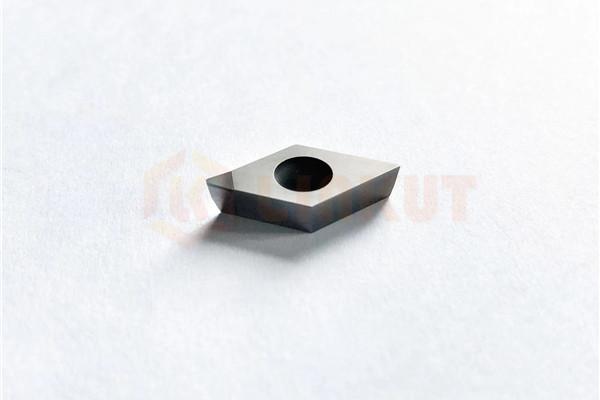LINKUT PCD Inserts: An Innovative Choice for Machining Iron - based Powder Metallurgy Eccentric Wheels
In the automotive and precision machinery industries, iron - based powder metallurgy eccentric wheels are widely used in transmission systems due to their unique advantages. However, they present significant machining challenges, which LINKUT has successfully addressed with its PCD inserts at the core. From semi - finishing to finishing turning, iron - based powder metallurgy eccentric wheels face several difficulties.
Pores in the material impact the edge of PCD inserts, accelerating wear and chipping. The eccentric structure causes cutting force fluctuations and vibrations, affecting dimensional accuracy. The finishing turning requires high surface finish and tight dimensional tolerances, which traditional tools can't easily meet, thus restricting machining efficiency and yield.
LINKUT's customized PCD inserts offer excellent performance. With a hardness exceeding 8000HV, their wear resistance is 8 - 12 times that of traditional carbide tools, effectively resisting the wear from hard phases. Their low - friction coefficient reduces cutting force and prevents built - up edges, meeting the surface quality requirements of finishing turning. The 0.01 - 0.03mm passivation treatment on the edge enhances impact resistance and avoids chipping.
LINKUT also optimizes the process for different machining stages.
In semi - finishing, coarse - grained PCD inserts are selected, and the feed rate and depth of cut are rationally controlled to quickly remove excess material and reserve finishing allowance.
In finishing, fine - grained PCD inserts are used with a high - speed, small - feed mode to precisely control vibrations, ensuring the dimensional tolerance within ±0.02mm and surface roughness Ra ≤ 0.8μm.
Additionally, the minimum quantity lubrication (MQL) technology optimizes cooling and lubrication, reducing cutting temperature and tool wear, and preventing cutting fluid residue. Compared with traditional solutions,
LINKUT's PCD - insert - based machining process increases tool life by over 5 times, improves machining efficiency by 30%, and boosts the yield rate to over 98%, significantly reducing costs.
This solution has been widely applied and recognized in the industry. In the future, LINKUT will continue to focus on machining pain points, deepen the R & D of PCD inserts and process iteration, and drive the development of the industry.
Previous Article:none
Next Article: LINKUT PCD Tools: The Key to Mass Production by Deeply Rooting in Core Scenarios of the Automotive Industry







